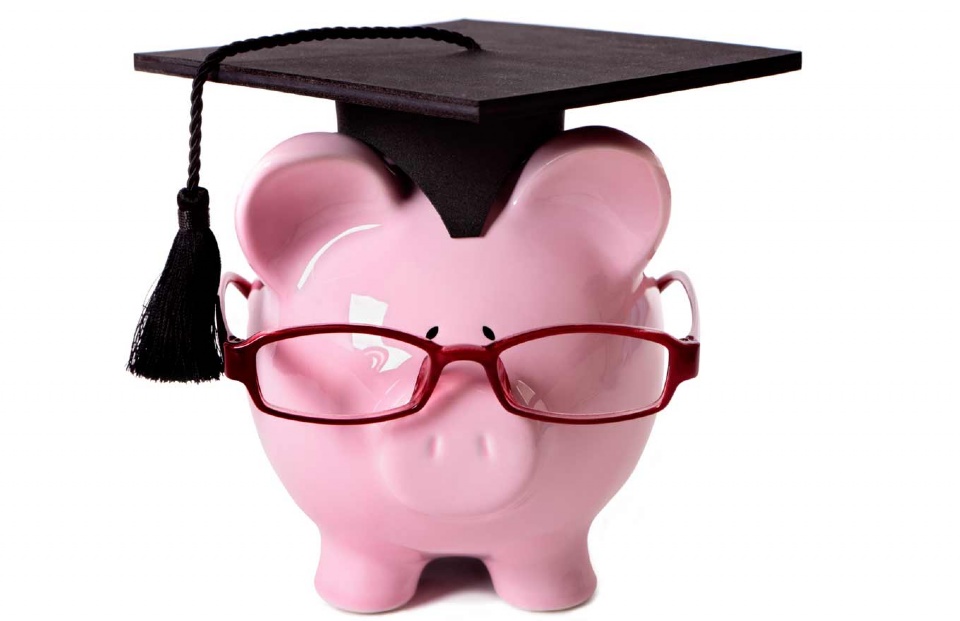Financing your studies while covering your day-to-day expenses and other
financial responsibilities can be quite a challenge.
Although it is not unusual to graduate with a few accumulated debts,
there are many ways to pay for an education without overextending yourself. The
key is to understand the various options available in order to make informed
decisions based on your current situation and the income you expect to earn in
the future.
Student loans and bursaries
Students who are granted a bursary are undoubtedly in an ideal situation
since the amount received does not have to be reimbursed.
Those who obtain a government student loan will, however, have to start
repaying it in accordance with a pre-established schedule, six months after graduating
or leaving school. While interest on government loans is income tax deductible,
it is, nonetheless, very wise to begin repaying the loan as soon as possible to
quickly erase that debt.
The Government of Canada offers a repayment assistance program for
student loans, which allows students to establish a repayment plan based on the
amount they can afford. Visit canlearn.ca under Home > Student Loans &
Grants > Repayment > Repayment Assistance for more information.
If the government loan or bursary is not sufficient to cover all
expenses, it may be a good idea to look into obtaining a line of credit.
Student line of credit*
A student line of credit is a form of loan granted to cover certain
education-related expenses. As long as students are in school full-time, there
is no obligation to repay the capital on the loan; only the interests charged
on the principal used.
This type of financing has many advantages, including the fact that it typically
carries a lower interest rate than the one charged on personal loans or credit
cards. Students may also use the line of credit to pay bills or purchases, or
even transfer amounts from one account to another, simply by using a debit
card, ATMs, electronic banking solutions or mobile banking solutions.
Credit cards*
Credit cards often get a bad reputation, but there are many ways to use
them responsibly and avoid incurring excessive debt.
First of all, it is crucial to closely monitor all credit card expenses.
If the amounts charged to the card exceed the student’s income, and that the borrowed
sum isn’t repaid in full each month on the due date, interest will accumulate,
on top of the minimum monthly payment required. It’s also important to know
that failing to make the minimum payment will negatively impact your credit
rating.
Nevertheless, a properly managed credit card can be of tremendous
support, especially in the event of urgent expenses that can’t wait until the next
paycheque. Some cards also offer the benefit of purchase insurance. It’s
important to take the time to assess every option (annual fees, reward programs,
etc.) in order to select the card best suited to your needs!
The wide variety of financing solutions offered to students requires you
to compare the pros and cons carefully. Of course, projected earnings come into
play in this equation, but it is crucial to first understand every one of the
options available in order to make an enlightened decision and get a
financially sound start to your professional life!
For more information about financing solutions for students, visit nbc.ca/students
or make an appointment with a National Bank advisor!
*Financing subject to credit approval by your
financial institution.

 In The Latest Issue:Latest Issue:
In The Latest Issue:Latest Issue:
- A Bittersweet Farewell
- The new Laval Aquatic Co...
- The End of an Era:
Articles
Calendar
Virtual- ANNUAL TEACHER APPRECIATION CONTEST
- APPUI LAVAL
- ARTS & CULTURE
- CAMPS
- CAR GUIDE
- CCIL
- CENTENNIAL ACADEMY
- CHARITY FUNDRAISING
- CITYTV
- COSMODÔME
- COMMUNITY CONNECTIONS
- COVER STORY
- DINA DIMITRATOS
- ÉCOLE SUPÉRIEURE DE BALLET DU QUÉBEC
- EDITORIALS
- ÉDUCALOI
- EDUCATION
- EMPLOYMENT & ENTREPRENEURSHIP
- FÊTE DE LA FAMILLE
- FÊTE DU QUARTIER SAINT-BRUNO
- FAMILIES
- FESTIVAL LAVAL LAUGHS
- FÊTE DE QUARTIER VAL-DES-BRISES
- FINANCES
- GLI CUMBARE
- GROUPE RENO-EXPERT
- HEALTH & WELL-BEING
- 30 MINUTE HIT
- ANXIETY
- CHILDREN`S HEALTH & WELLNESS
- CLOSE AID
- DENTAL WELLNESS
- EXTREME EVOLUTION SPORTS CENTRE
- FONDATION CITÉ DE LA SANTÉ
- GENERAL
- HEARING HEALTH
- MESSAGES FROM THE HEALTH AGENCY OF CANADA
- MENTAL HEALTH
- SEXUALITY
- SOCIAL INTEGRATION
- SPECIAL NEEDS
- TEENS
- THE NUTRITION CORNER
- THE NUTRITION CORNER - RECIPES
- VACATION DESTINATION
- WOMEN'S FITNESS
- WOMEN'S HEALTH
- HILTON MONTREAL/LAVAL
- HOME & GARDEN
- INTERNATIONAL WOMEN'S DAY
- JAGUAR LAVAL
- LAVAL À VÉLO
- LAVAL FAMILIES TV SHOW
- LAVAL FAMILIES MAGAZINE CARES
- LAVAL URBAN IN NATURE
- LE PARCOURS DES HÉROS
- LES PETITS GOURMETS DANS MA COUR
- LEON'S FURNITURE
- LEONARDO DA VINCI CENTRE
- LFM PREMIERES
- LIFE BALANCE
- M.P. PROFILE
- MISS EDGAR'S AND MISS CRAMP'S SCHOOL
- MISSING CHILDREN'S NETWORK
- NETFOLIE
- NORTH STAR ACADEMY LAVAL
- OUTFRONT MEDIA
- PASSION SOCCER
- PARC DE LA RIVIÈRE-DES-MILLE-ÎLES
- PÂTISSERIE ST-MARTIN
- PIZZERIA LÌOLÀ
- PLACE BELL
- PORTRAITS OF YOUR MNA'S
- ROCKET DE LAVAL
- SACRED HEART SCHOOL
- SCOTIA BANK
- SHERATON LAVAL HOTEL
- SOCIÉTÉ ALZHEIMER LAVAL
- STATION 55
- STL
- SUBARU DE LAVAL
- TECHNOLOGY
- TEDXLAVAL
- TODAY`S LAURENTIANS AND LANAUDIÈRE
- TODAY`S LAVAL
- WARNER MUSIC
- THIS ISSUE
- MOST RECENT
Magazine
For a financially sound student life
Articles ~e 105,7 Rythme FM 4 chemins Annual Teacher Appreciation Contest Appui Laval Arts & Culture Ballet Eddy Toussaint Camps THIS ISSUE MORE...
CONTESTS Enter our contests
CONTESTS Enter our contests
CALENDAR
Events & Activities
COMMUNITY Posts Events
PUBLICATIONS Our Magazine Family Resource Directory
LFM BUSINESS NETWORK Learn more
COUPONS Click to save!
COMMUNITY Posts Events
PUBLICATIONS Our Magazine Family Resource Directory
LFM BUSINESS NETWORK Learn more
COUPONS Click to save!
SUBSCRIPTIONS
Subscribe to the magazine
Un-Subscribe
E-NEWSLETTER Subscribe to our E-newsletter Un-Subscribe
WRITE FOR US Guidelines & Submissions
POLLS Vote today!
E-NEWSLETTER Subscribe to our E-newsletter Un-Subscribe
WRITE FOR US Guidelines & Submissions
POLLS Vote today!
ADVERTISERS
How to & Media guide
Pay your LFM invoice
SUGGESTIONS Reader's Survey Suggest a Listing
LFM About Us Our Mission Giving Back Contact Us
SUGGESTIONS Reader's Survey Suggest a Listing
LFM About Us Our Mission Giving Back Contact Us
 PICK-UP LOCATIONS
Get a copy of LFM!
PICK-UP LOCATIONS
Get a copy of LFM!
TERMS & CONDITIONS Privacy | Terms
ISSN (ONLINE) 2291-1677
ISSN (PRINT) 2291-1677
Website by ZENxDESIGN



 BY:
BY: 
Tweet
Share